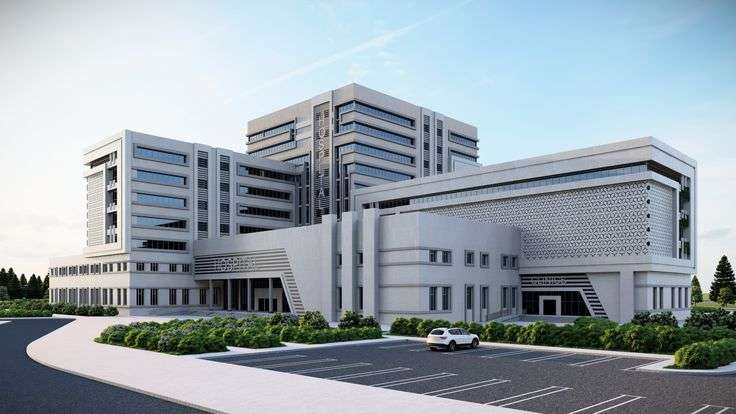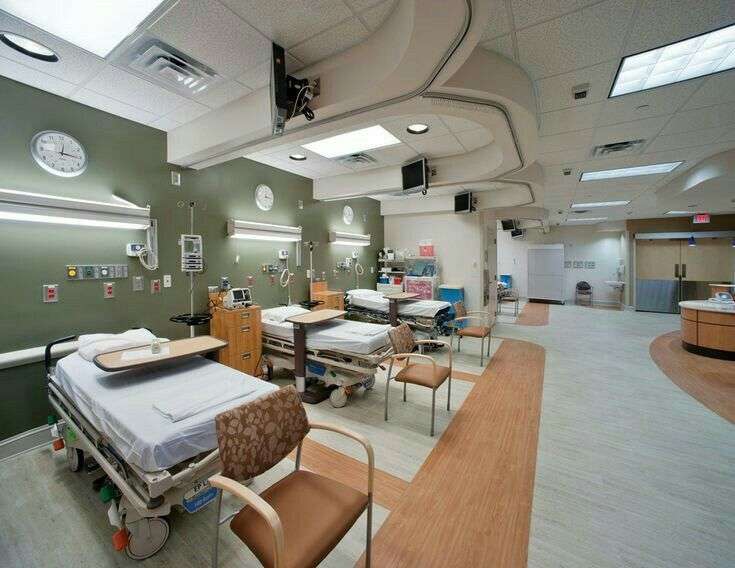
Why Operational Excellence is Crucial for Modern Hospitals
June 19, 2024
Hospital Licensing Requirements in India: Your Ultimate Guide
June 24, 2024The UAE is rapidly evolving as a global hub for healthcare innovation and excellence. With state-of-the-art facilities and cutting-edge technology, the nation is setting new standards in medical care. If you’re considering establishing a hospital in the UAE, there are several critical factors and regulations to keep in mind. This comprehensive guide explores UAE healthcare laws, hospital licensing, construction costs, funding options, and more.
Population Mix and Healthcare Demand
The UAE’s population, as of 2023, is approximately 10.2 million. Interestingly, Emirati nationals make up only 11.4% of this figure, with the remaining 88.6% being expatriates from South Asia, Southeast Asia, and Western countries. This diverse demographic creates a high demand for varied healthcare services, with expatriates often preferring private healthcare facilities. This preference, coupled with the government’s proactive support for healthcare infrastructure, makes the UAE an attractive destination for new hospital ventures.
Hiring Hospital Staff and Training Programs
- Hiring hospital staff in the UAE: Requires compliance with local labor laws and obtaining necessary visas and permits. Comprehensive hospital staff training programs are crucial for maintaining high standards of care and ensuring staff are up to date with the latest medical practices.
- Hospital Staffing Requirements: Understanding hospital staffing requirements is essential for ensuring that your facility is adequately staffed to meet patient needs. This includes doctors, nurses, administrative staff, and support personnel.
Connectivity and Infrastructure
The UAE’s advanced infrastructure significantly supports the healthcare sector. Major cities like Dubai and Abu Dhabi boast international airports with global connectivity, ensuring easy access for medical tourists and expatriates. A well-developed highway system and efficient public transportation further enhance accessibility to healthcare facilities, making it convenient for patients to reach hospitals from various parts of the country.
- Hospital Technology Integration and Medical Equipment Suppliers: Integrating hospital technology is essential for modern healthcare facilities. This includes electronic health records (EHR), telemedicine, and advanced diagnostic equipment. Working with reputable medical equipment suppliers in the UAE ensures that your hospital is equipped with the latest technology.
- Hospital IT Systems: Robust hospital IT systems are vital for managing patient information, billing, and hospital operations. Investing in advanced IT infrastructure enhances efficiency and improves patient care.

Economic Strength and Healthcare Expenditure
Driven by its substantial oil reserves and its status as a major trade and commerce hub, the UAE enjoys a robust economy with a GDP (nominal) estimated at $421.1 billion in 2023. This economic strength translates into high GDP per capita and considerable healthcare expenditure. The government’s heavy investment in the healthcare sector aims to improve access to quality care, addressing the needs of an aging population, increasing prevalence of chronic diseases, and rising healthcare costs.
- Cost of Building a Hospital in UAE: The cost of building a hospital in the UAE can vary widely based on location, size, and the type of services offered. On average, the construction budget ranges from AED 100 million to AED 500 million. This includes land acquisition, construction, medical equipment, and staffing.
- Hospital Funding Options in UAE: Several hospital funding options are available in the UAE. These include government grants, private investors, public-private partnerships, and international healthcare funds. It is essential to explore all avenues to secure the necessary capital for your project.
Healthcare System Overview
The UAE’s healthcare system comprises both public and private sectors. While the public healthcare system provides basic medical services to Emirati citizens, the private sector offers a wider range of specialized services. Health insurance is mandatory for all Emirati citizens in Abu Dhabi and Dubai, and there are plans to extend this mandate to the entire UAE population. This mandatory health insurance is expected to further boost demand for healthcare services, providing a ready market for new hospitals.
- UAE Healthcare Laws and Hospital Licensing: Before embarking on the journey to build a hospital, it is crucial to understand the UAE healthcare laws and hospital licensing requirements. The UAE has stringent regulations to ensure that healthcare facilities meet international standards. Hospital licensing in the UAE involves multiple steps, including approval from the Ministry of Health and Prevention (MOHAP), the Department of Health – Abu Dhabi (DOH), or the Dubai Health Authority (DHA), depending on the emirate.
- UAE Hospital Zoning Laws and Site Evaluation: Understanding UAE hospital zoning laws is essential for site selection. These laws regulate where hospitals can be built and ensure they are accessible to the community. Conducting a thorough hospital site evaluation includes assessing the population density, proximity to other healthcare facilities, and ease of access.
- Hospital Design Standards and Architecture Trends: Hospitals in the UAE must adhere to specific hospital design standards that ensure patient safety, comfort, and operational efficiency. Current hospital architecture trends emphasize sustainable hospital design, integrating green building practices to reduce environmental impact.
- Sustainable hospital design: In the UAE focuses on energy efficiency, water conservation, and using eco-friendly materials. Incorporating natural light, green spaces, and energy-efficient systems can significantly reduce the hospital’s carbon footprint.
Hospital Community Outreach in UAE
Engaging in hospital community outreach in the UAE builds trust and fosters a positive relationship with the community. Programs such as health camps, free medical check-ups, and educational seminars can enhance your hospital’s reputation and community standing.
Building a hospital in the UAE is a multifaceted process that involves careful planning, compliance with regulations, and strategic execution. By understanding the various aspects outlined in this guide, you can successfully navigate the complexities and establish a healthcare facility that meets the highest standards of quality and excellence
Top 10 Causes of Death in the UAE
Understanding the prevalent health issues in the UAE is crucial for tailoring hospital services. The top 10 causes of death include:
- Ischemic heart disease
- Stroke
- Chronic obstructive pulmonary disease (COPD)
- Trachea, bronchus, and lung cancers
- Neonatal conditions
- Diabetes mellitus
- Alzheimer’s disease and other dementias
- Kidney diseases
- Liver cirrhosis
- Road injuries
These health issues highlight the need for comprehensive healthcare services, including cardiology, oncology, neonatology, endocrinology, and trauma care.
Top Hospitals in the UAE
Some of the top-ranked hospitals in the UAE include:
- Abu Dhabi Stem Cell Center (Abu Dhabi)
- Cleveland Clinic Abu Dhabi (Abu Dhabi)
- Dubai Hospital (Dubai)
- Ibn Sina Medical Center (Dubai)
- Jebel Ali Hospital (Dubai)
- Magrabi Arabian Healthcare Group (Dubai and Abu Dhabi)
- Medcare Hospital (Dubai)
- NMC Royal Hospital (Dubai)
- Sheikh Khalifa Medical City (Abu Dhabi)
- Tawam Hospital (Al Ain)
These hospitals set high standards for healthcare services in the UAE, and any new hospital should aim to meet or exceed these benchmarks.
Growth Plans and Future Prospects
The UAE government’s ambitious growth plans for the healthcare sector include expanding health insurance coverage, investing in medical research and development, encouraging innovation in healthcare delivery, and attracting foreign investment. These initiatives, combined with the country’s strong economic foundation and supportive infrastructure, present a promising future for new hospital projects.
Conclusion
At Hospertz Healthcare Consultancy, we recognize that building a hospital in the UAE is a significant yet immensely rewarding endeavor. The UAE’s diverse population, robust economy, and supportive government policies make it an ideal environment for healthcare investments. By thoroughly understanding the local healthcare landscape and meticulously planning each phase, new hospitals can thrive and enhance the UAE’s reputation as a global healthcare destination.



